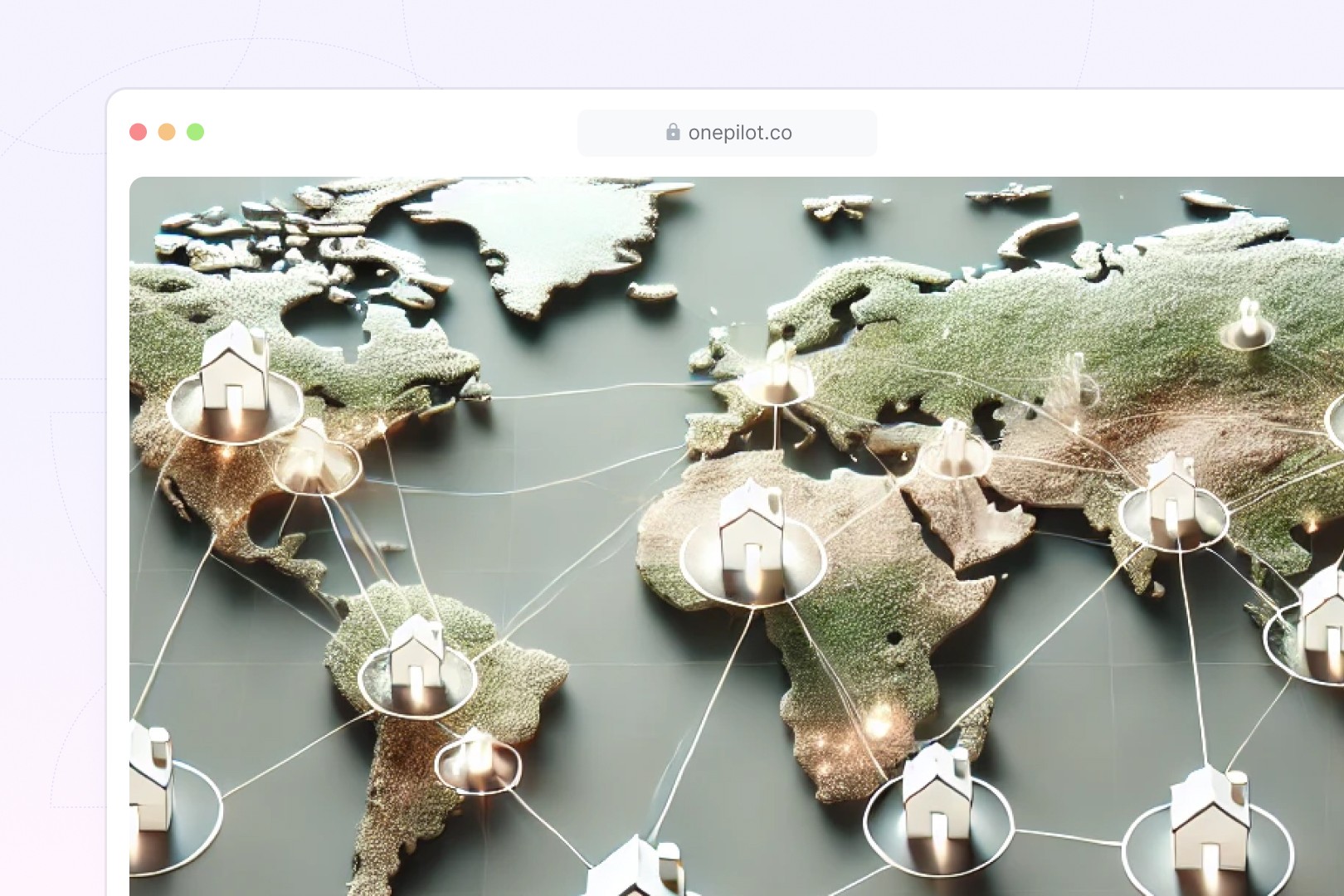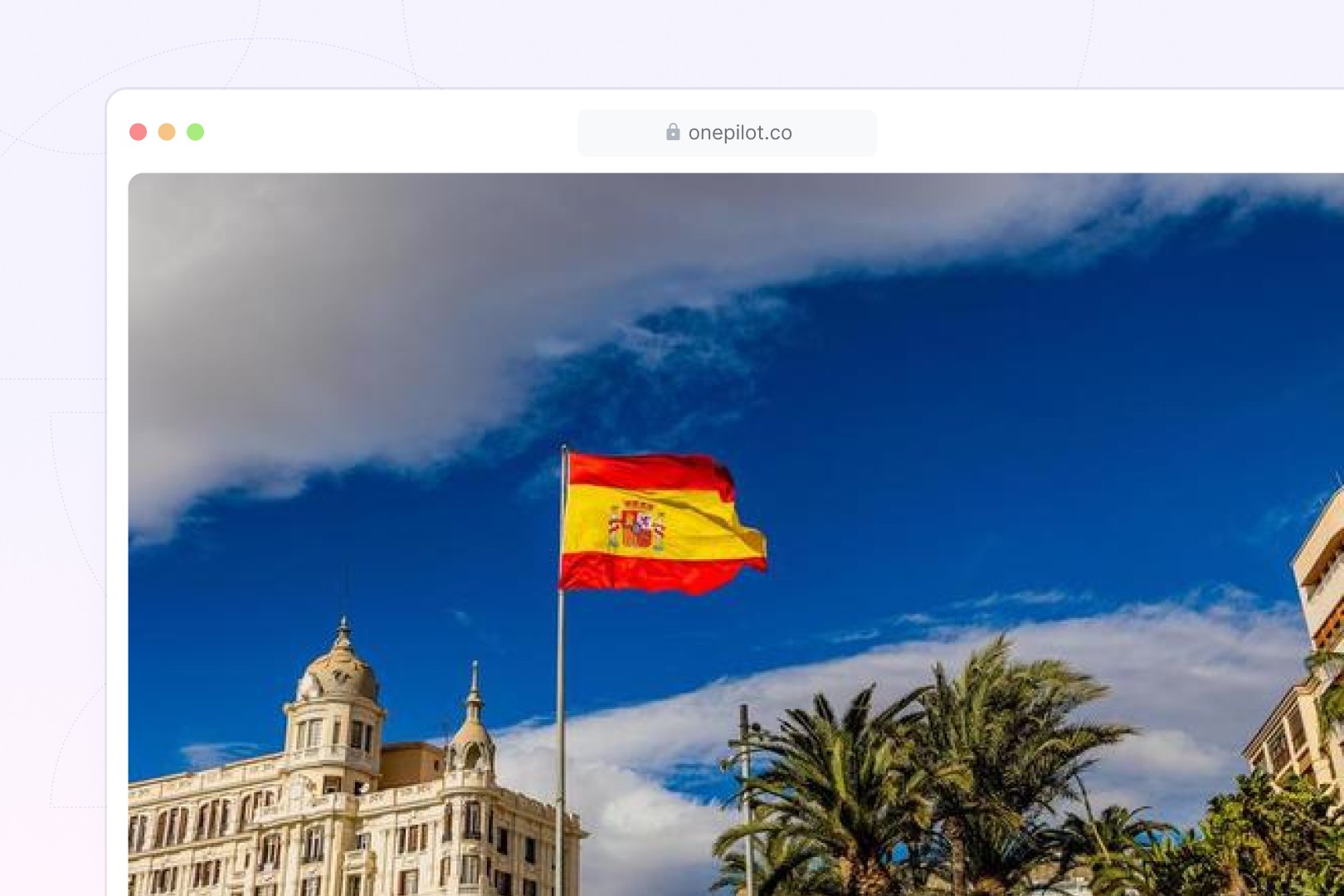Erkenntnisse
30. Januar 2025
Die Onepilot-Reise in wenigen Worten
Wir haben Onepilot im Jahr 2021 mit zwei wichtigen Beobachtungen gestartet:
Kundenanfragen per E-Mail, Chat oder Telefon sind in den letzten 20 Jahren explodiert, und viele Marken kämpfen damit, diese intern aufgrund von außerhalb der Geschäftszeiten, Personalkosten und schwankenden Volumina zu verwalten.
Die technologischen Werkzeuge, die für den Kundensupport verwendet werden, sind stark fragmentiert und ineffizient, was die Arbeit manuell und kostspielig macht.
Unsere Idee war es, E-Händlern 24/7 reaktionsschnelle Kundensupport-Agenten und Technologien zur Verfügung zu stellen, die ihre Arbeit so einfach wie möglich machen.
In etwas mehr als drei Jahren haben wir mit etwa 300 der besten Unternehmen in Europa aus verschiedenen Sektoren und Größen zusammengearbeitet und sind von Null auf 25 Millionen Euro Umsatz gewachsen.
Die Bedeutung der operativen Qualität für unsere Kunden
Bei Onepilot ist es unser primäres Ziel, einen beispielhaften Service für unsere Kunden zu garantieren. Die Erlangung der ISO 18295-1-Zertifizierung im September 2023 war ein wichtiger Meilenstein zur Stärkung unseres Engagements für Kundenzufriedenheit und Prozesszuverlässigkeit.
Warum haben wir uns für die Zertifizierung entschieden?
Der ISO 18295-1-Standard orientiert sich an internationalen Best Practices für Call-Center und ausgelagerte Kundenbetreuung. Obwohl wir bereits viele Prozesse implementiert hatten, wollten wir auf diesen Standard vertrauen, um jeden Schritt zu optimieren – von der Ausbildung der Agenten über die Kundenbeziehungen bis hin zum Management von Unzufriedenheit. Durch die Erfüllung der Anforderungen der ISO 18295-1 haben wir unseren Ansatz verfeinert und unsere Ziele besser mit denen unserer Kunden in Einklang gebracht.
Was uns die ISO 18295-1 über unsere Betriebsprozesse beigebracht hat
Identifizierung der Kundenbedürfnisse: Die Zertifizierung hat uns geholfen, unser Verständnis für die Erwartungen und Anforderungen der Kunden zu stärken. Wir haben mehrere konkrete Maßnahmen ergriffen, um die einzigartigen Herausforderungen jedes Kunden besser zu erfassen und effektiver darauf zu reagieren.
Optimierung der Arbeitsabläufe: Der Standard bot einen strukturierten Rahmen, um unsere Arbeitsabläufe im Detail zu prüfen, Engpässe zu reduzieren und den Informationsfluss zwischen den Teams zu verbessern. Wir haben beispielsweise unsere Eskalationsprozesse überarbeitet, um die Lösung komplexer Situationen zu beschleunigen.
Dokumentation und Analyse: Durch das Zertifizierungsaudit haben wir den Wert einer präzisen und detaillierten Dokumentation erkannt. Dieser Ansatz ermöglicht es uns, Praktiken zu standardisieren und einen kontinuierlichen Verbesserungsprozess zu etablieren, der Transparenz und Abstimmung im Team fördert.
Unser Kunden-Onboarding-Erlebnis: Eine erfolgreiche Transformation
Bei Onepilot ist das Onboarding mehr als nur eine technische Integration – es ist ein personalisiertes Erlebnis für jeden Kunden.
Seit wir die Zertifizierung erhalten haben, haben wir unseren Onboarding-Prozess um diesen Standard herum strukturiert. Die Kunden sind von Anfang an eingebunden, damit unsere Teams ihre spezifischen Erwartungen vollständig integrieren können. Schulungen unserer Kunden, integriert in unsere Akademie, sind hochgradig individualisiert, um sicherzustellen, dass unsere Agenten nicht nur die Produkte und Dienstleistungen des Kunden verstehen, sondern auch deren Marken-Kultur und Werte.
Mehr als ein Standard: Ein kontinuierliches Engagement
Die ISO 18295-1 war ein bedeutender Meilenstein auf unserem Weg zur Exzellenz. Dieser Standard hat uns geholfen, unsere Prozesse weiterzuentwickeln, um sowohl unseren Kunden als auch unseren Mitarbeitern zugute zu kommen.
Indem wir auf aufkommende Bedürfnisse reagieren und unsere Prozesse kontinuierlich verbessern, verpflichten wir uns, Unterstützungsdienste zu erbringen, die über die ISO-Standards hinausgehen.
Es ist ein fortlaufendes Engagement für hochwertigen Kundensupport. Wir laden unsere Partner und potenziellen Kunden ein, sich zu melden, um mehr über unseren Ansatz zu erfahren, der auf Transparenz, Innovation und kontinuierlicher Verbesserung basiert.

Unsere Tipps für ein erfolgreiches Zertifizierungsaudit
Ein Zertifizierungsaudit kann beängstigend sein, aber mit der richtigen Vorbereitung kann es eine bereichernde Erfahrung sein. Hier sind einige praktische Tipps, die Ihnen zum Erfolg verhelfen:
Vorbereitung
Verstehen Sie die Anforderungen des Standards: Machen Sie sich mit dem Standard vertraut, da er als Referenzdokument während des Audits dient.
Setzen Sie einen realistischen Zeitplan: Planen Sie jeden Schritt des Prozesses, einschließlich Zeit für Korrekturmaßnahmen, Tests und mögliche Überarbeitungen.
Zusammenarbeit mit dem Auditor
Proaktive Kommunikation: Halten Sie offene Diskussionen mit dem Auditor, um Erwartungen und Schwerpunkte zu klären.
Umfassende Dokumentation: Stellen Sie sicher, dass alle erforderlichen Dokumente aktuell und leicht zugänglich sind. Dazu gehören Richtlinien, Verfahren, Berichte und Compliance-Nachweise.
Teamvorbereitung
Schulung und Sensibilisierung: Binden Sie alle Interessengruppen in den Zertifizierungsprozess ein und präsentieren Sie Schlüsselpunkte und deren Auswirkungen auf die täglichen Abläufe.
Audit-Simulationen: Führen Sie Übungs-Audits (als Rollenspiel-Übungen) durch, um das Team mit dem Auditprozess vertraut zu machen und potenzielle Lücken zu identifizieren.
Audit-Management
Begrüßung des Auditors: Bereiten Sie einen Arbeitsplatz für den Auditor vor und stellen Sie alle Fragen, die Sie zum Auditprozess haben könnten.
Transparenz: Seien Sie ehrlich über Bereiche, die verbessert werden müssen – kein System ist perfekt, und Auditoren verstehen das.
Nach-Audit-Maßnahmen
Ergebnisse analysieren: Nehmen Sie sich Zeit für eine Nachbesprechung nach dem Audit, um Nicht-Konformitäten, Stärken und Verbesserungsbereiche zu verstehen.
Aktionsplan für Korrekturen: Wenn Nicht-Konformitäten festgestellt werden, implementieren Sie schnell einen Plan für Korrekturmaßnahmen und stellen Sie eine strenge Nachverfolgung sicher.
Wichtige Kennzahlen
Projektdauer: 6 Monate von Beginn bis Audit.
Einbezogene interne Ressourcen: Qualität, Betrieb, HR, Exekutivausschuss, Sicherheit.
Auditdauer: 3,5 Tage.
Auditkosten (für einen 3-Jahres-Zyklus): 8.350 €.
Zeit zwischen Abschluss des Audits und Ausstellung des Zertifikats: 2 Monate.
Interessiert daran, einen Qualitätszertifizierungsprozess zu starten und Fragen zu haben? Zögern Sie nicht, uns zu kontaktieren!
Bleiben Sie über die neuesten Anleitungen und Nachrichten informiert.




